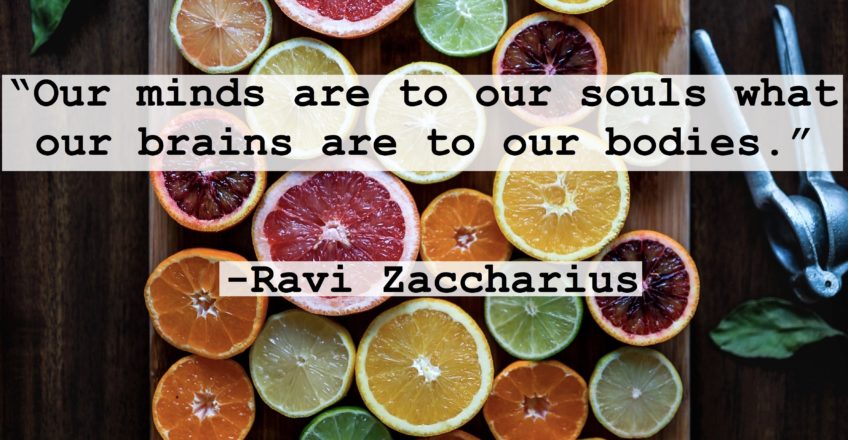So what we put into our minds, what we set our hearts on, find enjoyable, celebrate with our focus and our time, those impact the condition and health of our souls.
And this isn’t just content that is morally wrong. Sure, there is stuff we watch or listen to that doesn’t pass the Philippians 4:8 test, and then there is stuff that isn’t okay for me but may be fine for somebody else.
In our podcast this week Anna talked about how, for her, that is Fixer Upper and Friends. It’s hard to not watch that show and hate Nathan a little bit – I mean can’t he be even just a little like Chip? And what is with those girls in Friends being so pretty and skinny?!
For Nathan that is one of the major reasons he had to step away from gaming: Virtual worlds were steadily more satisfying and exciting than the world he was created to be a part of.
But for Anna and Nathan these were specific, prayerful decisions made because of personal conviction, not because of moral right or wrong of the content. We are told to work out our salvation with fear and trembling. This means two critical truths:
- We have been given our salvation already, it’s already been worked in through Jesus Christ! The rest of this life is simply working out what God’s already done.
- Each of us needs to listen to the guidance of the Holy Spirit and the conscience God has equipped us with. It’s true, what we want to watch, listen to, or play may not be “bad”, but that’s not our standard.
We need to be able to participate in daily life with a clear conscience and if we can’t we need to pray and listen to what God is asking us to do.
Paul addresses this when writing believers in Corinth. In regards to disagreements about what food to eat (which, for the record, he makes very clear is morally fine to eat the food and drink the wine) he says: ““All things are lawful,” but not all things are helpful. “All things are lawful,” but not all things build up” (1 Corinthians 10:23). His point is that believers need to do more than simply be “right” about moral law. We need to think beyond what we’re free to do in Christ and think about others. A simple example for today’s world: Would you drink in front of a recovering alcoholic? God, through Paul, says don’t. Don’t do anything that might cause someone else to sin against their conscience (1 Corinthians 10:28).
Paul also addresses this topic to the church in Rome in what has become known as the tyranny of the weaker brother. The basic idea is that me doing something with a clear conscience is still sin if it causes someone else to sin against their conscience: “But whoever has doubts is condemned if he eats, because the eating is not from faith. For whatever does not proceed from faith is sin.” (v.23) Let’s repeat that last part: Whatever doesn’t proceed from faith is sin.
So if I watch a show and I get mad at God because that isn’t my life, does that proceed from faith? Am I trusting God or doubting God in that moment?
If I play a game and it makes me less satisfied with the place in life and reality that I currently reside, the place where God has put me, is that building or hurting my faith?
If I lust, hate, or escape the life I’ve been called to through any means of my own strength, can that be considered an action proceeding from faith?
In each of these cases the actions themselves may have been fine, but the actions didn’t proceed from faith – a belief in God and a right action in Him. All sin, since Adam and Eve, comes down to that very piece: Sin is any action that proceeds from faith in anything other than God.
This week let’s look at what we put into our minds. God, through Paul, reminds us that we’ve got a higher standard than “good enough”. Everything we do, including what we watch, listen to, and play, needs to proceed from faith. Not for right action that we might impress God, but that it may be a reflection of the faith he’s put into us.
Let’s cut off everything that distracts from him or causes us to trust in ourselves. And “let’s run with perseverance the race marked out for us, looking to Jesus, the author and perfecter of our faith, who for the joy that was set before him endured the cross, despising the shame, and is seated at the right hand of the throne of God.” (Heb. 12:1-2) Let’s put into our minds this week only what will help our souls more clearly see Jesus.

I'd love to hear your thoughts!
You must be <a href="https://flintandiron.org/wp-login.php?redirect_to=https%3A%2F%2Fflintandiron.org%2F2020%2F05%2F13%2Four-minds-are-to-our-souls-what-our-brains-are-to-our-bodies-ravi-zaccharias%2F">logged in</a> to post a comment.